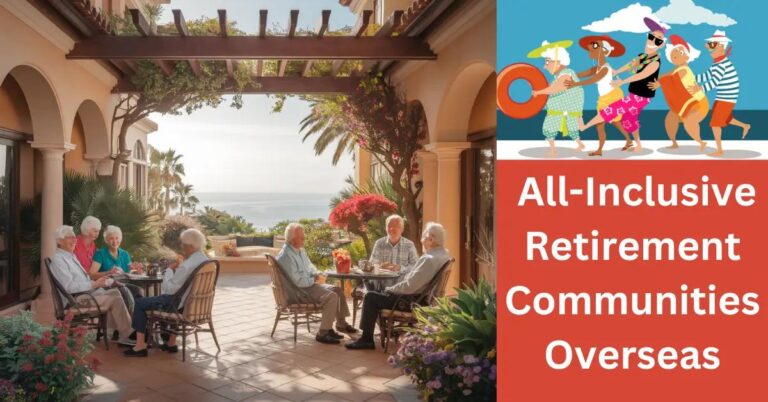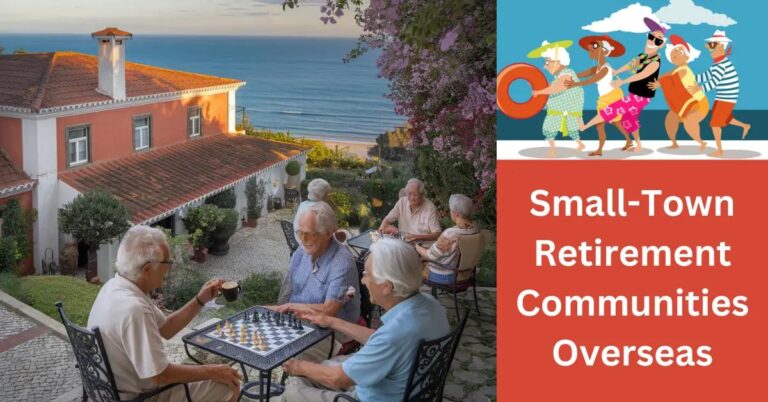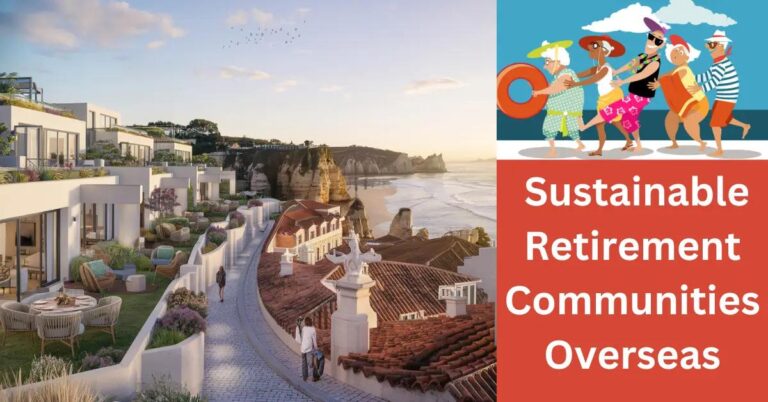TL;DR:
- Top affordable retirement communities in Vietnam include Da Nang, Nha Trang, and Da Lat, offering beaches, scenic views, and natural beauty.
- Amenities often include parks, clinics, golf courses, social clubs, gyms, and pools.
- Evaluate homes by size, location, visit in person, and read reviews.
- Healthcare is affordable, with foreign-friendly private hospitals; health insurance is advised.
- US citizens can retire with various visas; no specific retirement visa exists.
- Ho Chi Minh City and Hanoi are popular for expats, while smaller towns offer lower living costs.
- Monthly living cost ranges from $800 to $1,500.
- $600,000 USD can sustain retirement in Vietnam.
- Learn Vietnamese, engage with locals, and partake in the expat community for a fulfilling retirement.
Dreaming of a retirement spot where you can live comfortably without breaking the bank? Vietnam might just be your answer. With its lush landscapes, vibrant culture, and welcoming communities, Vietnam offers affordable retirement options that won't compromise your quality of life. In this guide, we'll explore the most affordable retirement communities in Vietnam and help you decide if it's the right place for you. Whether you're drawn by the promise of a relaxed beach town or a bustling city, join us as we uncover the best retirement options Vietnam has to offer.
What Are the Most Affordable Retirement Communities in Vietnam?
Where can you find affordable retirement housing Vietnam has to offer? The best affordable retirement communities are spread across this beautiful country. The place where you choose to retire depends on your needs. Let's compare and see the features of different communities.
Many retirees come for affordable senior living Vietnam communities provide. Some top spots to consider are Da Nang, Nha Trang, and Da Lat. In these places, you can find comfortable homes without spending much. Da Nang is a vibrant city with great beaches and shops. Nha Trang offers wonderful views of the sea. Da Lat boasts a cool climate and natural beauty.
What are the amenities like? Retirees can enjoy several features. These places offer nearby parks, clinics, and even golf courses. Some communities have clubs for social activities. They may also have gyms or pools. Visit a few places to see which feels most like home to you.
How should you assess affordable housing options Vietnam offers? First, consider the home's size and location. Do careful planning. Visit homes in person if you can. Speak to other retirees who live there. Reading reviews online can offer helpful insights as well. Take note of what amenities matter most to you.
What about affordable healthcare insurance in Vietnam? Healthcare in Vietnam is good and affordable. Indeed, there are private hospitals and clinics that cater to foreigners. It's wise to get health insurance if planning to retire here. Research providers and plans that offer good coverage options. Choices vary, so ensure you get what suits your needs.
For affordable retirement communities in Vietnam for rent, both short and long-term rentals are available. Renting allows you to try a place before deciding to settle there. It's good to have flexibility, especially if you are not sure where you'll be happiest.
Why Choose Vietnam for Retirement?
Many Americans are retiring to Vietnam for a rich lifestyle at a lower cost. This vibrant country offers colorful culture and events. Imagine being part of festivals, enjoying traditional music, and tasting unique foods. Making the most out of retirement means living life fully, and Vietnam delivers on this promise.
Can US citizens retire in Vietnam? Yes, they can! There is, however, no specific visa for retirees in Vietnam. Most retirees stay by getting different types of visas, like a tourist or business visa, which they renew as required. This process may feel complex, but many people successfully navigate it and find their happy place in Vietnam.
Vietnam's expat community is another big draw. You will find many friendly networks and groups that welcome newcomers. These folks often host gatherings and events, creating a sense of belonging. Being part of such a network makes adapting easier. Plus, sharing experiences with others who made the same move can help pave your way.
Cost-effective living is a standout feature here. In Vietnam, retired life can cost much less than in the US. The day-to-day expenses are lower, from fresh local meals to public transport. Plus, you can enjoy a good quality of life without breaking the bank.
Healthcare in Vietnam is cheap yet offers decent services. While it may not be as advanced as US healthcare, many expats find it satisfactory. Hospitals in big cities like Ho Chi Minh City and Hanoi have well-trained staff and speak English. You can even get affordable insurance for extra peace of mind.
One cannot overlook the people of Vietnam themselves. They are known for their kindness and smiles. Seniors enjoy frequent respect and courtesy from locals. Learning a few phrases in Vietnamese can open doors to warm exchanges, enriching your daily life.
Choosing Vietnam for retirement means embracing a new, exciting chapter. A colorful culture, supportive community, and affordable living all await. Retirement here means swapping routine for exploration and connection.
Where Are the Best Places to Retire in Vietnam?
Many retirees choose Vietnam for their golden years. So, where do most retirees live in Vietnam? The answer is Ho Chi Minh City and Hanoi. These are the big cities where life buzzes with energy. Here, you find good hospitals, fun activities, and many places to explore. You can also meet other expats and share stories of home.
But, if you prefer a quieter life, you might ask, where is the best place to live in Vietnam for expats? Look to affordable beach towns like Nha Trang or Da Nang. These towns suit those who want sand between their toes while living cheaply. The views of the ocean calm your mind, and the seafood is fresh every day.
Thinking about the countryside? Vietnam's countryside offers peace and green views. Imagine waking to bird songs and having tea by a rice field. Places like Dalat are famous for their cool weather and beautiful landscapes. This escape is perfect if you seek a simple, nature-filled life.
Each place offers something special, but other factors shape your choice. One key factor is cost. Living in smaller towns often means lower costs for homes and food. Yet, bigger cities may offer more in health care and expat gatherings. Also, think about travel needs. Some may want to be closer to airports for visiting family.
Another factor is local amenities. What comforts do you need daily? Do you want a gym nearby or a favorite theater? Make sure to pick a place that fits your lifestyle.
Choosing where to retire in Vietnam is about knowing what matters most to you. Find a place that speaks to your heart, whether it’s a lively city or a quiet village. Check local scenes, talk to other expats, and see what feels like home. This journey is about finding your perfect retirement spot in Vietnam.
How to Plan a Retirement in Vietnam?
Planning to retire in Vietnam? Here's how to get started.
How much money is enough to retire in Vietnam? A good plan is around $1,500 a month for a single person. That amount covers rent, food, and other needs. In some places, you can live well on less.
How much does it cost to live in Vietnam for retirement? For most, it costs between $800 and $1,500 a month. Cities like Ho Chi Minh City are pricier, but inland areas are cheaper.
Can I retire in Vietnam on $600K USD? Yes, $600,000 USD can last decades in Vietnam. It depends on your lifestyle and choices. Save some for health care and travel.
Next, you need a retirement visa. Vietnam offers long-term visas for retirees. You often start with a three-month visa and then extend it.
You need to show enough money in the bank. This means proof of savings over $1,500 a month. Also, you must have a place to live, like a rented apartment.
Let’s look at getting Vietnam residency. To stay long-term, you need a residence card. It takes a bit of work but helps in many ways. You enjoy things like local healthcare.
Adapting to life in a new country can be tricky. Learn the language even if it’s just a few words. Try local food and walk around the city. Make friends with locals and other retirees. Join clubs and groups to meet people faster.
Living in Vietnam offers new things every day. It feels both busy and calm. Careful planning ensures you enjoy every moment. You can have the peace of a beach or the energy of a city. Choose what suits you best to enjoy retirement fully.
Conclusion
From exploring vibrant cities to peaceful countryside retreats, Vietnam offers diverse retirement options. We compared amenities and assessed affordable housing and healthcare. Choosing Vietnam means enjoying a rich culture and active expat community with an affordable lifestyle. With thoughtful planning for visas and finances, retiring here becomes seamless. Embrace the welcoming culture and make Vietnam your new home for a fulfilling retirement.







